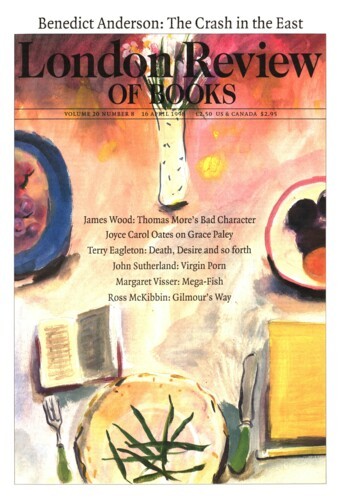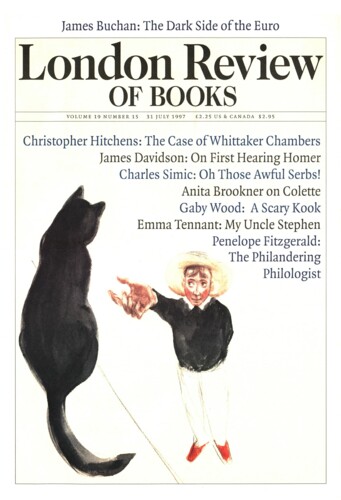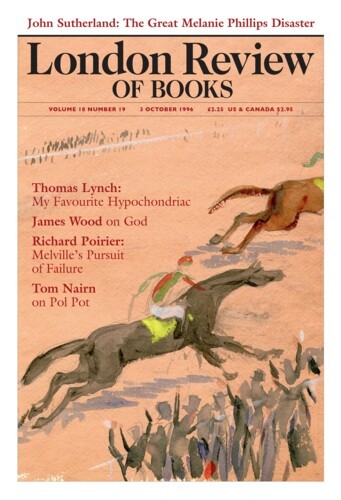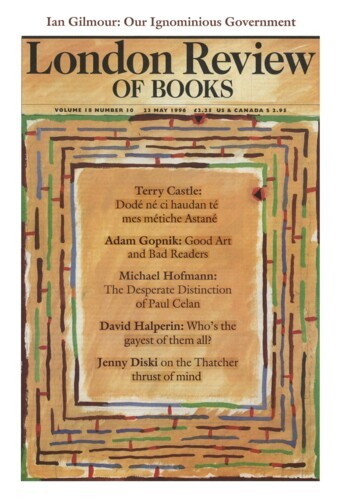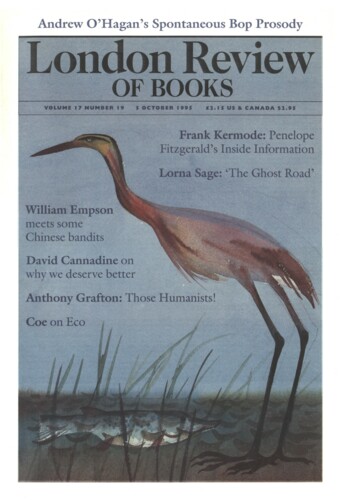Diary: Oscar Talk at the Huntington
Zachary Leader, 16 April 1998
In February 1987, partly to finance the purchase of a larger house, Kingsley Amis sold his papers (483 catalogued items) to the Huntington Library in Southern California. Amis professed to hate ‘abroad’, but he was only intermittently a cultural nationalist. When Philip Larkin, in his capacity as librarian, canvassed him in 1960 for his views on the export of manuscripts, he received the usual robust reply:‘
